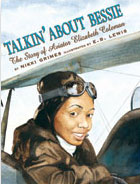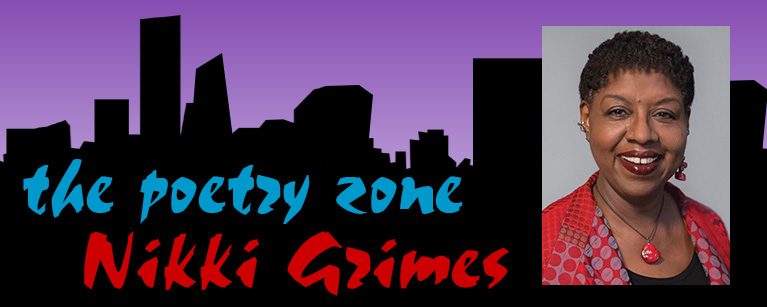 Since when did the American classroom become a democracy?
Since when did the American classroom become a democracy?
When I was in school, long after dinosaurs became extinct, I was made to sit through lessons on math, general science, and social studies, none of which suited my fancy. I wasn’t particularly fond of Shakespeare either, at least not when his works were first introduced. With time, though, I learned to appreciate the value of general science, social studies, and even—dare I say it?—math. As for Shakespeare, that early classroom introduction to his works began a love-affair I’ve been having with his literary genius ever since.
None of that would have happened if my teachers had limited the scope of their teaching to what I, a fickle, unformed, and uninformed young person said I liked or disliked. My teachers never asked me my subject preferences, nor should they have. Their years of education, expertise, and real-world knowledge put them in a position to know, within the realm of education, what was good for me. They ran their classrooms accordingly, teaching those subjects they knew to be important, assigning those books they knew would expand my horizons, deepen my understanding of primary topics, and prepare me to succeed at the next level of my academic career, and beyond. While I wasn’t too thrilled at the time, snarky, angst-ridden little twerp that I was, I felt quite differently when I applied, and was accepted to, the colleges and universities of my choice. I was happy, then.
Things are different now. Today, many educators seem to be taking their cues from their students. How is that possible? And when did that happen? And how on earth can that approach ever serve the student?
Before you take a cane to me, let me explain. I’ve got a reason for my rant.
I had no use for history when I was in school. Until, that is, I discovered historical fiction. That was the point at which the dry bones of history came to life for me. Once I discovered how individual historical figures were connected, and the real-word impact history had on my life, I got excited about history. I have been hooked ever since, and that has led me, primarily a poet and novelist, to delve into creating historical fiction of my own. I am, in fact, working on such a manuscript this very moment, and the research for it has given me no end of goosebumps! So imagine how disheartened I am when I hear, as I often do, teachers who love historical fiction say “I can’t assign historical fiction. My kids will never read it.”
Excuse me? Since when do students get a vote?
I’m sorry, but this kind of thinking makes me crazy. I heard something similar about poetry, for years. Teachers hesitated to introduce poetry to their students because they were convinced their young charges wouldn’t like it. Some of that thinking was a carryover from their own negative experiences of trying to memorize classics as a child, or being forced to dissect poetry in some strictly clinical fashion. (What a way to destroy affection for poetry before it is even engendered!) But when said teachers finally dipped their toe into the poetry pool, they discovered that their students not only liked poetry, but loved it. And, yes, some of that had to do with choosing the right poetry, aimed at the right age group of course. But the point I’m getting at is this: poetry has been transforming classrooms across the country for years. Now I think it’s time for teachers to revisit the idea of introducing students to historical fiction, as well.
“Why?” you ask. Why not? What’s the worst that can happen? Maybe a student will learn something he didn’t know before. Perhaps a bit of history slipped in between the fiction will give him a jolt of excitement. Is that something to be feared? Really?
Whether you consider assigning historical fiction to be risky or not, children should not be allowed to dictate curriculum, and neither should teens. Yes, I think it is important to include popular fiction on your reading list to entice your students to climb between the pages of a book. With that in mind, if you want to include vampire lore and fantasy fiction in your classroom library because it’s all the rage, fine. But, please, don’t stop there. Expose your students to other books, and to a variety of genres, including historical fiction. If you know that a work of historical fiction will expand your students’ understanding of a particular era, for instance, by all means assign it! “But my kids won’t like it!” you say. Yes, yes, but you said that about poetry too, remember? And look what happened? Poetry enriched your students’ overall reading experience, and enhanced their writing to boot!
Here’s the bottom line: the young people in your classroom are there to learn. Your job—and I know that you know how to do this—is to teach. Challenging your students is part of the gig. You know what a treasure a beautiful collection of poetry or a solid work of historical fiction can be. Don’t talk yourself out of sharing it with your students just because they’re inclined to groan or suck their teeth. Find the best books and make them assigned reading. In the end, your students will love you for it. Trust me. I’ve got stacks of letters from kids who’ve read my books and fallen in love with poetry for the first time, and others who’ve read Talkin’ About Bessie who suddenly have a taste for history and, believe me, my work is scarcely scraping the surface of this genre. Today’s market is full of spectacular authors writing historical fiction for young readers, some of which have won the Newbery (Moon Over Manifest, anyone?). Just ask your local librarian for a list of recommendations.
Okay. I’m done. I hope you’ll feel challenged, encouraged, and empowered to embrace your inner history-geek. Go on. Go for it! You’ve got nothing to lose.



3 Responses
Education should be based on what we must learn to face society in our future lives. The problem is that lately politicians argue over what this is and we get curriculum changes so often that schools and teachers are all confused. We don’t get the time to evaluate the results of the latest curriculum changes before new ones are implemented. Students and parents have really caught on to school democracy and make it difficult for teachers to carry out the basic education as it is now. It’s frustrating having to explain why it is necessary to be able to read and count before taking on more challenging tasks. I’m sad to so often meet students at junior high school level not having the basic skills. It feels like having to start all over with some students in the class while what we really should cover falls behind.
On the other hand I have had quite a few kids thanking me for forcing them to finally learn multiplication and division. It is rewarding but at the same time it’s an eternal chase to meet standards that are set way above that.
So, yes let schools work with education without to much time spent on having to explain why so often.
For myself, math was always my favourite subject along with physics and German. But as life developed also English, Biology and Chemistry have more interesting. But without the ‘boring’ hours at school I wouldn’t have that. What we need to do is make it clear that one must fight one’s way through the basic courses in order to go on. Like it or not, there is a meaning in it all.
You make a good point, Nikki. But I wonder about the other sides of this discussion. Recently, during a conversation about computers and the internet, my seventh grade son asked me incredulously, “So, what DID you do when you wanted to know something?” From our vantage point, it would be romantic (and, I would argue, not quite accurate) to say, well, we just went out and LOOKED for the information!–as if just presenting us with a task would have appealed to our curiosity. I’m pretty sure that my own curiosity was focused on wondering how little of the boring work I could do and still graduate. And, think for a moment how difficult information gathering was compared to this Internet age. Just getting a phone number when your phone book was outdated was a chore. I remember trying to get my first job, trying to figure out WHO to call or write, trying to learn what the mission of a company was. And, like you, I keep a blog–who would have ever heard my opinion on anything before online blogs?
And then the internet came and everything changed. The point I’m getting at is not at odds with yours. There’s just a genie that is way out of the bottle.
I think, that we relied much more on our teachers, and other adults, to direct us toward information and interests–or force us if we were snarky or angst ridden. We were more dependent, less independent, as learners. But, I believe that education is alive, and is an organism that ought to evolve along with the business and media we live in and use. From what I can see, today’s young people are SO SMART in so many ways. Indeed, many of them lack basic skills but why should we expect them to receive the delivery of these skills in the mode of OUR past when everything else is coming at them with 21st century speed?
This morning I read this fascinating column about a project that speaks to the way that kids CAN and DO learn in their time. I believe there are ways to get kids to try all kinds of subjects. I see it happening in the best classrooms, with the best teachers, all the time. But, boring will not do. Who wants to be bored? I don’t. And, who wants to be boring? Not me. And anyone who talks themselves out of teaching something they love, whatever it is, to their students probably doesn’t KNOW their students in the way they ought to.
http://www.nytimes.com/2011/03/15/opinion/15engel.html?hp
Amen, Ms. Grimes. Amen.